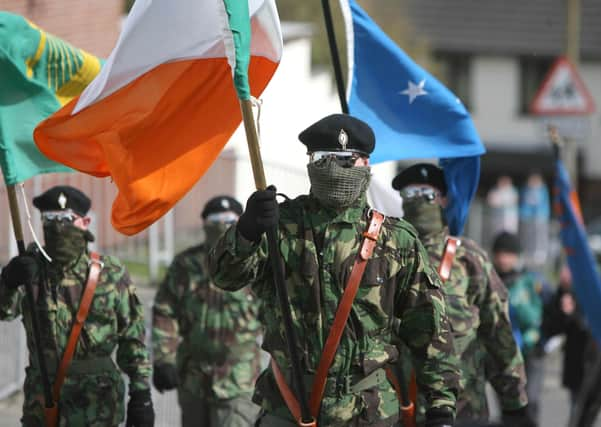Heavy Derry focus in David Seymour’s latest anti-terror law report - violent republican activity and PSNI counter-measures reviewed


David Seymour, in his 13th report on the Justice and Security (NI) Act 2007, examines the use of the powers to counteract republican groups in Derry. The report covers the period August 1, 2019, to July 31, 2020.
Mr. Seymour states: “The threat to NI from NI Related Terrorism (NIRT) remains at SEVERE which means that an attack is highly likely. This reflects the threat posed by Dissident Republican (DR) groups the most significant of which are the New IRA and the Continuity IRA. Other smaller groups Óglaigh na hÉireann (ONH), Arm na Poblachta (ANP) and the Irish Republican Resistance (IRR) continue to engage in paramilitary style attacks which have a harmful effect on communities but their intent and/or capability to conduct national security attacks is comparatively low and they pose a smaller threat.”
Advertisement
Hide AdAdvertisement
Hide AdMr. Seymour, a former Director General of the Attorney General’s Office, goes on to outline a representative list of incidents in which Derry features heavily.
He notes ‘an attempted attack on the Strabane PSNI station with an improvised weapon’ in September 2019, when the ‘device failed to detonate’ and ‘the New IRA claimed responsibility’.
The lawyer mentions the discovery of ‘components of an Improvised Explosives Device (IED)’ during searches in Derry. And he highlights the recovery of an IED and firearm during searches in Derry in June last year.
Mr. Seymour reports how the COVID-19 pandemic resulted in a decrease in violent republican activity as well as public order problems.
Advertisement
Hide AdAdvertisement
Hide AdHowever, he does mention tensions that arose around a parade in Derry in 2019.
“Notable incidents occurred in connection with bonfires in the New Lodge area of Belfast and the Apprentice Boys procession in Derry. Such events have the potential to lead to significant public disorder,” he observed.
Mr. Seymour reports specifically on the use of stop and search powers in Derry.
The power to ‘stop and search a person without reasonable suspicion’ was used most often in Belfast, Derry and Strabane and Armagh, Banbridge and Craigavon.
Advertisement
Hide AdAdvertisement
Hide Ad“The use of the power in those 3 police districts accounts for almost half (49%) of the use of the power across all 11 police districts. But that is against the background of a decline in the overall use of the power. In Belfast it is down 46% on the previous period and in Derry City and Strabane it is down 30% on the previous period,” he states.
A power to ‘stop and question’ was not used widely in Derry but Mr. Seymour states: “One factor in this decline is likely to be the fact that the identity of the individual will very often be known to the police. So, for example, the power was only used 42 times in Derry City and Strabane accounting for only 6% of the total use of the power. It was used more frequently in 5 other police districts including Belfast (172).”